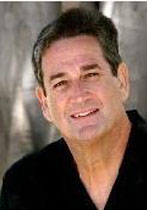By Rabbi Ben Kamin

SAN DIEGO — Beyond Memphis, whence he was once driven away because he thought racism was immoral, most folks did not know John T. Fisher, a Christian who actually thought the Bible was telling him something more important than his less-enlightened white cronies and club buddies. “John T.” died on December 30, having long been redeemed and honored as one of the “Lions of Memphis.”
The story unfolded during those most turbulent and polarizing days and weeks in the spring of 1968. An unlikely friendship began to develop—between Reverend James Lawson (the spiritual leader of the wildcat sanitation workers) and the prominent, white businessman and city trailblazer. Fisher, a prosperous car dealer and active Rotarian, lived next door to Memphis Mayor Henry Loeb—making it all the more improbable that he would come to partner in any way with Lawson. Loeb would simply not recognize the sanitation workers’ union and Lawson was the much-feared, even hated black personification of the labor campaign. Rev. Lawson convinced Dr. Martin Luther King, Jr. to come to Memphis.
Fisher had a strain of conscience, however. He was drawn to Lawson’s fierce advocacy of the “walking buzzards” and he was driven by deeply held theological beliefs. Even before the April 4 assassination of Dr. King, John T. Fisher began to quietly meet and interact with Lawson. In 2010, Fisher told me from his Memphis home: “He was a whole person. There was no imagery with Jim Lawson.” Fisher attempted to speak to his neighbor Henry Loeb about the growing disorder in Memphis—as an entrepreneur, he certainly believed that the deadlocked situation could only damage the fiscal health and reputation of the city.
Mayor Loeb did not listen to anyone who even implied an accommodation with the black garbage workers. Fisher’s growing admiration for Jim Lawson, his speeches, his moral obduracy, his unwavering physical and spiritual commitment to his cause, led Fisher to a gnawing struggle with his own social codes. “Finally, I couldn’t waffle,” he told me. Fisher broke with his circle of Episcopalian power brokers and spoke of reconciliation and a settlement with the strikers.
“Why?” I asked him. “What so impassioned you to their cause?”
Fisher’s answer was quiet but direct: “I guess I remembered what I learned in Sunday School.” In a 2008 interview with Memphis Magazine, Fisher recalled his meetings with Lawson during the brunt of the crisis. Fisher sometimes brought one or two other sympathetic whites. “Jim told us that we were the only group of white people to go see him about [the strike] and not tell him what to do. We went and we listened. We became good friends then, and have stayed that way. I would see Jim in those days more often than I would Henry Loeb. I’d go places and he’d be surprised to see me. But that’s how our friendship grew.”
On the day after the King assassination at the Lorraine, Fisher found himself at the R.S. Lewis Funeral Home—one of very few whites there or even out and about at all in the city. “I didn’t know what to expect, but I was sitting in the chapel when an open casket was rolled into the room, with Martin Luther King in it. I remember looking at it and thinking to myself: ‘ John T., you could have met him so easily, and now you can’t.’ It was a very profound feeling, standing there, looking at that.”
Fisher formed a group called “Memphis Cares.” He organized a reconciliation rally at Crump Stadium for April 7, Palm Sunday—9,000 people appeared and the crowd was thoroughly mixed racially. Lawson spoke and was characteristically direct and frank, challenging the crowd to do more than just talk and pontificate. His fresh, unbridled grief for Martin took hold of him and he berated the city for creating the atmosphere for “a crucifixion here in Memphis.” Fisher was initially worried that Lawson’s rhetoric might only inflame the situation but he soon came to esteem this moment as well.
John T. Fisher suffered for his actions; he was ostracized by other whites and, in his own words to me, “experienced some turmoil in my life.” He said that men forbad their wives to come to the Fisher home in the aftermath of his “Memphis Cares” endeavors. One woman who grew up in the city amidst the white elite told me that the Fishers were banished and went bankrupt. In fact, John took his family and moved to Geneva, where he spent several years rebuilding his life and his capital. Finally, long returned home, he was regarded in Memphis as one of “the lions” of that terrible era when police maced civilians, when children were told not to mingle with black people, and when men went mad.
I asked Reverend Lawson about his alliance with John T. Fisher. “Oh, yes,” he said, his tone softening with affection. “We met for the first time very late at night at the Peabody Hotel,” implying the veil of secrecy that had to attend such a rendezvous in that hotel. “There was in him that which touched what was in me.”
Lawson added, “You know, he was one of the prized young men of white Memphis. But he saw a different light and we were very much drawn together. I think it was his strong roots in the church that sent him back to those good values.”
“I guess I just remembered what I learned in Sunday School,” John T. Fisher said to me. God rest his soul.
*
Kamin is an author and freelance writer based in San Diego. He may be contacted at ben.kamin@sdjewishworld.com